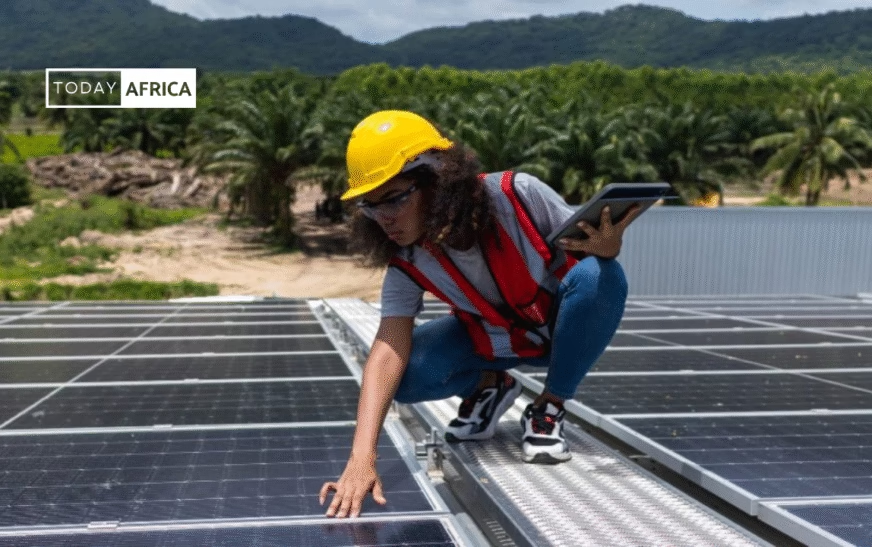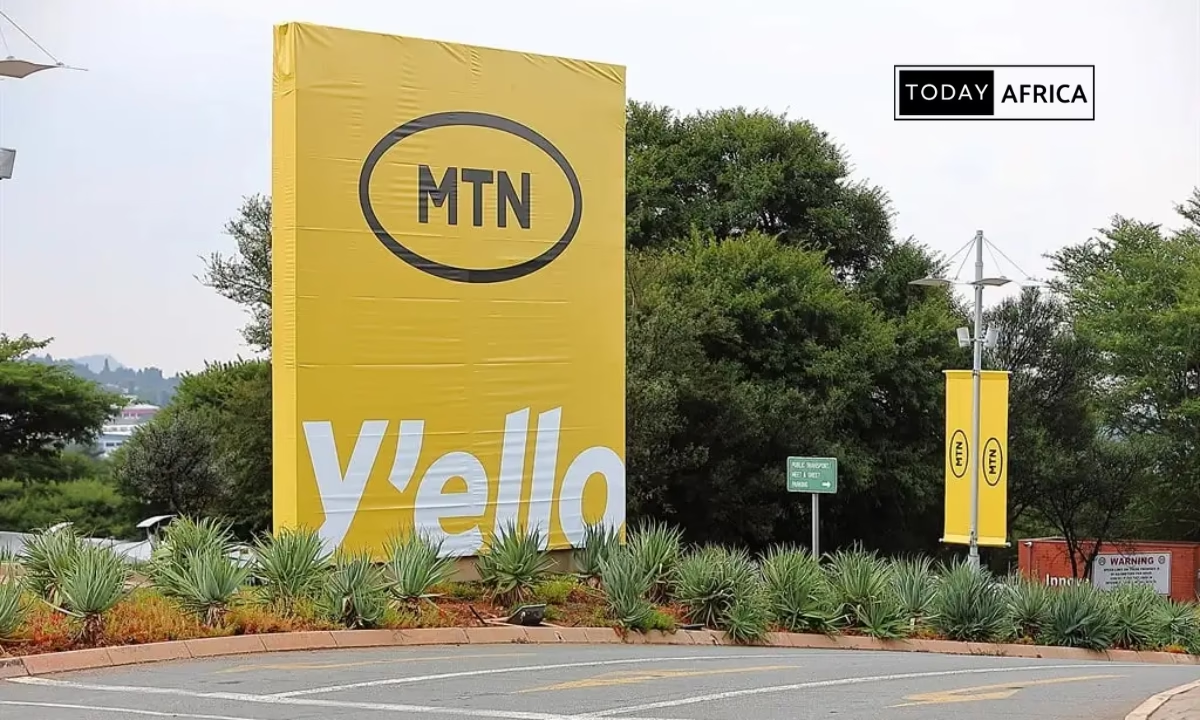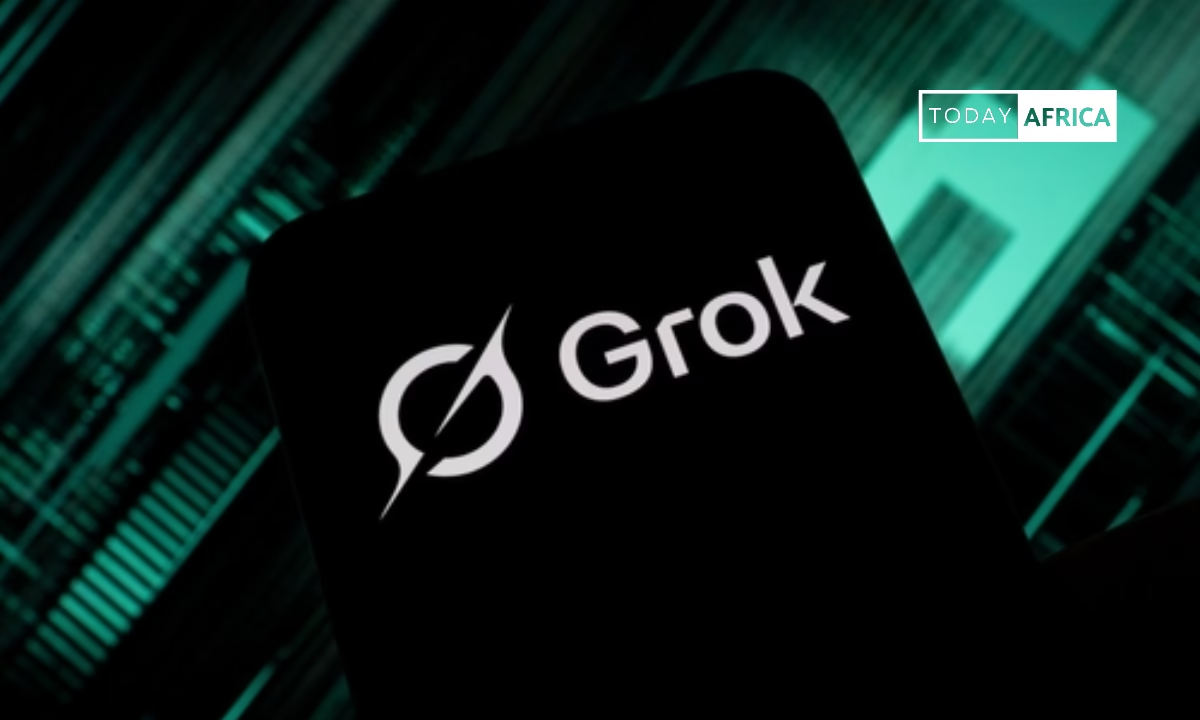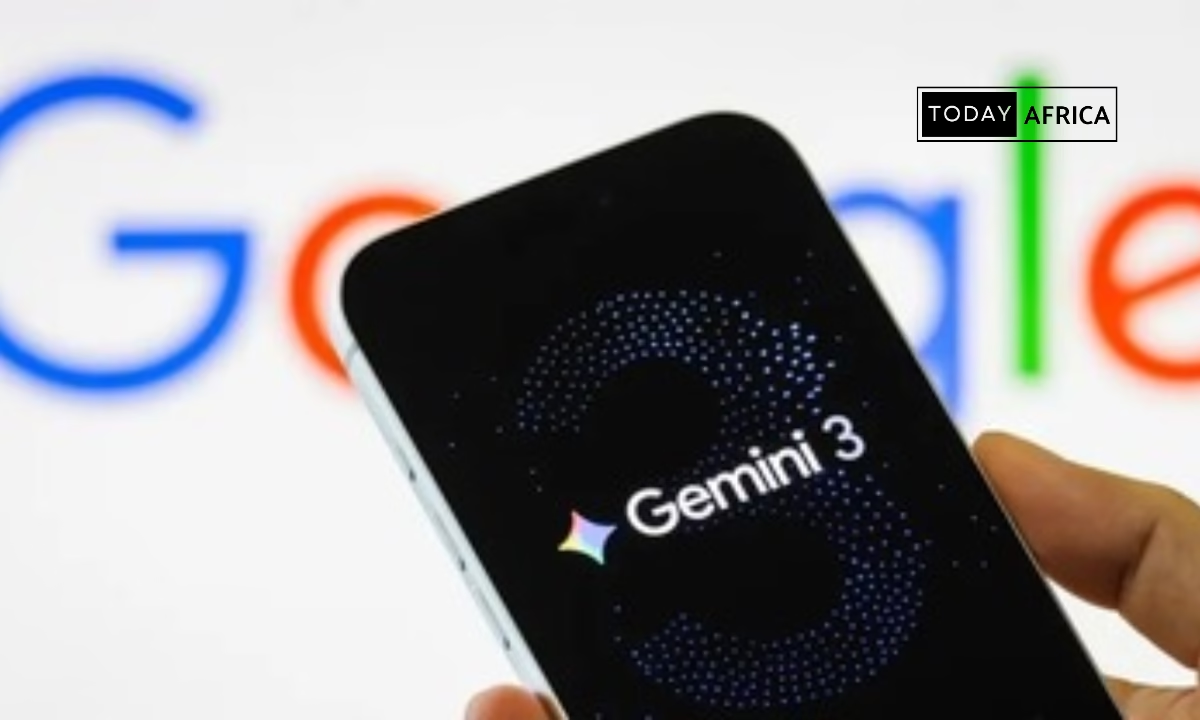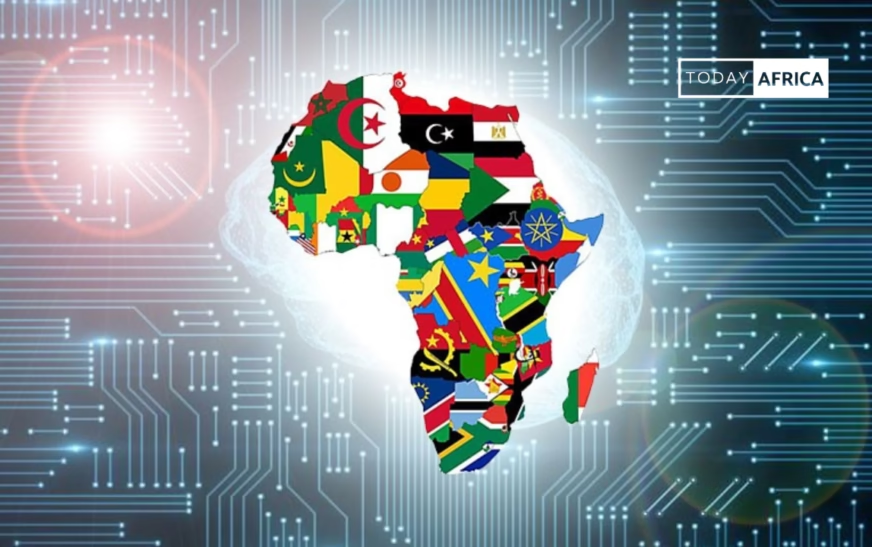Green energy in Africa is growing rapidly, and women are playing a vital role as entrepreneurs, technicians, and leaders.
As one industry leader notes, “Promoting the participation of women in the renewable energy sector is vital as the sector plays a bigger role in helping to provide access to energy for all.” Yet women remain underrepresented.
In Sub-Saharan Africa, women are about 31.6% of STEM graduates but only 13% of the energy sector workforce. This gap occurs despite international commitments, the UN’s SDG5 and the African Union’s gender strategy emphasize women’s empowerment in climate and energy action.
In this post, we examine current involvement, barriers faced, and success stories of women in green energy in Africa.
Women in the Green Energy in Africa
Women’s representation in Africa’s green energy industry is growing, but still uneven. For example, African universities now have about 47% of STEM graduates who are women – the highest share globally.
However, this strong educational presence has not fully translated into employment. A World Bank/WEN-Africa report highlights that only 13% of the energy sector workforce in Sub-Saharan Africa is women.
Globally, women held roughly 32% of renewable energy jobs (versus 22% in the broader energy field) as of 2019. In some African renewables niches, women’s share is higher: IRENA found that about 38–40% of the solar PV industry workforce in Africa are women, well above the global renewable average.
National data confirm strong participation in solar: decentralized solar PV systems employ ~41% women in Kenya and ~37% in Ethiopia (versus 35% in Nigeria).
Women are also highly entrepreneurial in the green economy. Sub-Saharan Africa has the world’s highest rate of female entrepreneurship: about 25.9% of women in the region are starting or running businesses, compared to only ~5.7% in Europe.
Many African women are channeling this entrepreneurial spirit into clean energy: for example, women-run enterprises are prominent in mini-grids, solar retail, and bioenergy ventures across countries.
These statistics suggest that Africa’s “green energy movement” is drawing significant female talent, especially in renewables, even as gender gaps remain in leadership roles and overall workforce share.
Barriers to Women’s Participation
Social and cultural norms
Deep-rooted stereotypes still limit women’s roles in technical fields. Community attitudes can discourage girls from engineering careers, and workplaces may perceive energy jobs as “men’s work”. Women entrepreneurs also report that male-dominated environments challenge their authority, especially where on-site fieldwork is seen as inappropriate for women.
Education and training gaps
Many African women have less access to specialized technical training. Sub-Saharan women make up only about 31.6% of STEM graduates, and far fewer complete engineering or energy-related programs.
Lack of training opportunities, particularly in rural areas, directly limits women’s entry into jobs like solar installation or minigrid management. For example, a Senegal field study found that women face difficulties accessing training and jobs in the solar sector due to economic and educational barriers.
Networking and mentorship
Women often have fewer professional contacts and mentors in the energy industry. The absence of female networks means women get less exposure to job openings and partnerships. This gap is one reason organizations like IFC launched the Women in Renewable Energy in Africa (W-REA) network to connect women professionals across the continent.
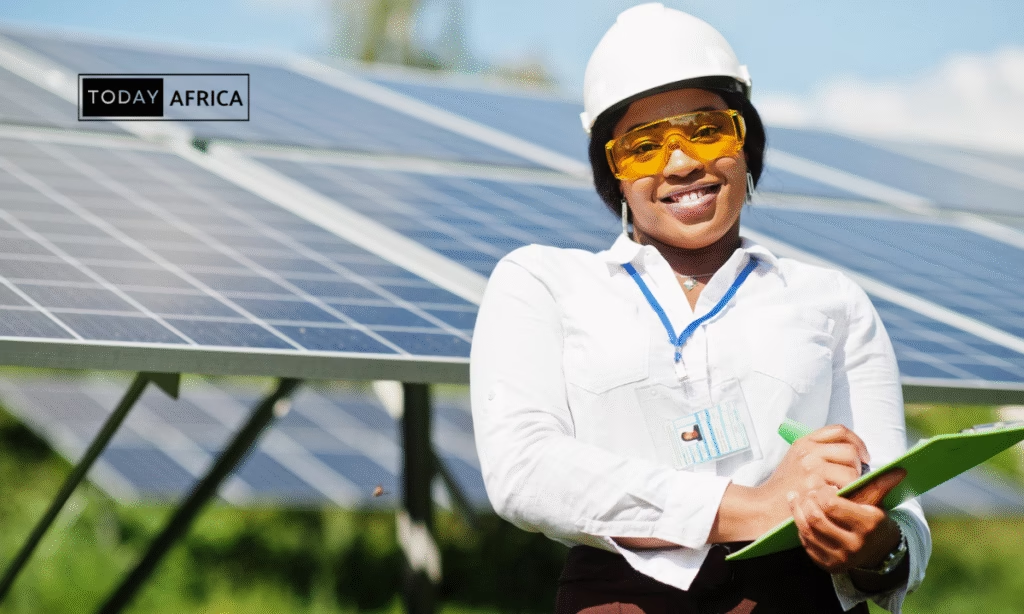
Funding and resources
When women do seek energy careers or start businesses, they frequently hit capital constraints. Surveys (e.g. by UN Women and the Gates Foundation) report that African women entrepreneurs’ top challenge is limited access to finance and resources.
This problem affects solar microenterprises as much as larger projects; for instance, in Kenya and Nigeria, women-led energy startups report a severe lack of seed funding.
These barriers are interlinked and self-reinforcing. As one mentor observes, “women often feel they are not cut out for the energy or engineering sectors”, which discourages applications and perpetuates the gender gap.
Overcoming them requires both societal change (to alter stereotypes) and concrete support (education, capital, networks).
Read Also: Top 11 Tech Hubs in Africa This Year
Women-led Initiatives and Success Stories
1. Solar Sister (Uganda, Rwanda, South Sudan)
A pioneering social enterprise that trains women to sell solar lanterns, home systems, and clean cookstoves in rural communities. Solar Sister grew from 10 women in 2009 to over 7,000 women entrepreneurs by 2023, reaching more than 3 million people.
It uses a “business in a bag” model (training plus inventory) to empower women as energy retailers. The impact is large: the UNFCCC reports that every $1 invested in a Solar Sister entrepreneur generates about $48 in local economic value (from sales and cost savings).
Equally striking, an $18 solar lantern yields roughly $163 in household savings over five years by displacing kerosene.
These women-led micro-businesses have brought affordable lighting to thousands of off-grid homes. Solar Sister entrepreneurs in Uganda pose with solar lanterns. By selling clean lights door-to-door, these women bring power and income to rural homes.
2. ElleSolaire (Senegal)
Founded in 2017, ElleSolaire is an all-women solar distribution network. It recruits, trains, and supports female entrepreneurs to sell pico-solar products (lanterns, home systems, chargers) in remote villages.
Through partnerships with village savings groups, ElleSolaire has rapidly expanded. As of 2023 it has provided clean solar power to over 100,000 rural Senegalese and electrified 27 health clinics, many in poor communities.
The program offers finance, vocational training, and ongoing business support to help women overcome startup barriers. This initiative demonstrates how female-led companies can scale sustainable solutions: ElleSolaire’s women distributors are now key nodes of Senegal’s rural energy supply chain.
3. RETTI Solar Up Nigeria
Nigerian entrepreneur Glory Oguegbu founded the Renewable Energy Technology Training Institute (RETTI) and launched Solar Up Nigeria to train rural communities.
The program provides hands-on solar and business training to women (and men) in underserved areas, aiming to create 10,000 renewable energy entrepreneurs in five years.
Oguegbu emphasizes leading by example: “if I can do it they can too,” she says, noting that women often doubt their fit for energy careers. To counter this, RETTI offers scholarships and mentorship bundles exclusively for top female applicants.
Her fellowship initiatives and support packages are explicitly designed to inspire women to enter and lead in Africa’s energy transition.
4. Zanzibar’s ZESTA Internship (Tanzania)
This government-backed program (Zanzibar Energy Sector Transformation and Access) ran a STEM internship for women across phases. In one cohort (Dec 2023–May 2024), female interns received training in engineering fields (mechanical, electrical, civil) and applied their skills in real projects.
The results included new technical abilities and confidence: for example, Fatma Hamad Ali, a young mechanical engineer, successfully took on traditionally male roles in maintenance and solar installation.
Other interns built IT systems and improved service delivery. This targeted initiative shows that practical training and mentoring enable women to break barriers in the energy sector.
Each of these cases illustrates women’s leadership and innovation in green energy. From door-to-door solar sales to mini-grid planning, female entrepreneurs are driving clean technologies and proving the economic viability of gender-inclusive models.
Read Also: Top 100 Startup Accelerators & Incubators in the World
Policies, NGOs, and Institutional Support
1. WEN-Africa (World Bank/ESMAP)
The Women in Energy Network Africa, launched in 2024, is a coalition of African energy institutions committed to gender inclusion. To date it has secured pledges from energy ministers and CEOs across the continent.
Partners have pledged concrete actions (by 2025) such as creating STEM internship programs for young women, establishing mentorship schemes for female energy professionals, providing workplace childcare facilities, and revising company policies for gender inclusivity.
Such commitments (covering hiring, retention, education and policy) exemplify coordinated efforts to remove industry barriers.
2. IFC’s Energy2Equal and W-REA
The International Finance Corporation (IFC) is running Energy2Equal (with Canadian support) to work with renewable energy firms in Africa on gender parity. It partners with companies (solar off-grid firms, utilities, etc.) to expand women’s access to jobs, leadership roles, and value-chain entrepreneurship~.
IFC also launched Women in Renewable Energy in Africa (W-REA), the first continental network of women in renewables, to provide mentorship and advocacy.
According to IFC, women currently hold only about one-third of renewable energy jobs worldwide; by collaborating with businesses, these initiatives aim to accelerate women’s leadership in hiring and management.
IFC’s Regional Gender Lead underscores that “enhancing women’s participation… is not only about employing more women, it is also about promoting women’s entrepreneurship through corporate supply chains”.
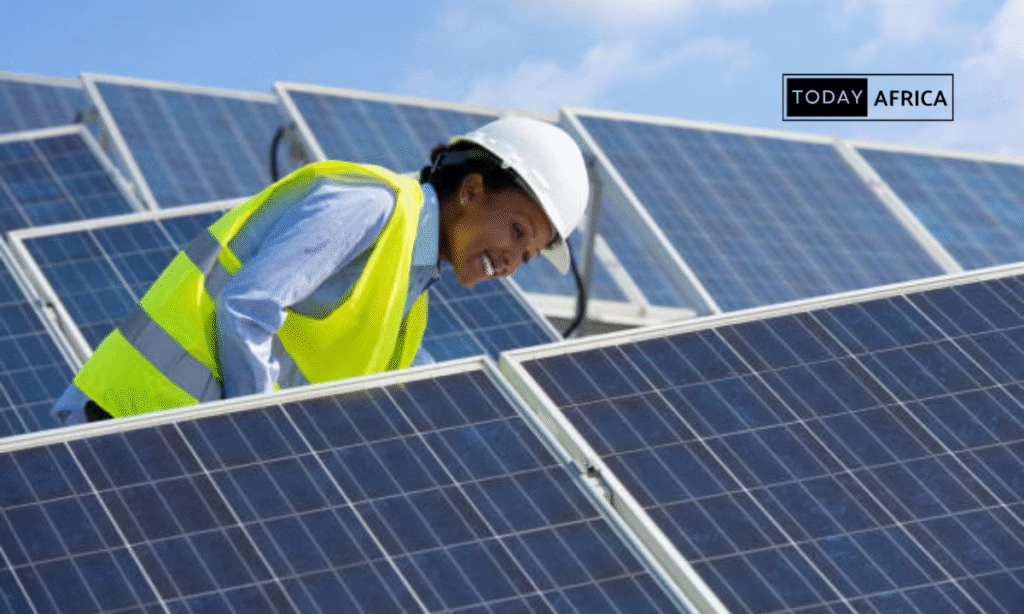
3. Gender-integrated funding
Development funds and NGOs increasingly attach gender components to energy programs.
For example, the Nordic-managed EEP Africa grants fund has prioritized women-led clean energy projects: one-third of its portfolio companies are female-led, and 42% of jobs created by its projects go to women.
Such outcomes suggest that simple policy shifts (like requesting gender-inclusive proposals) can yield substantial results, as noted by EEP’s managing director.
Likewise, donor agencies and UN programs (e.g., UN Women’s Green Jobs for Women initiative) promote access to finance and training for women in the sector.
4. National and local policies
Several African governments have begun mainstreaming gender in energy plans.
Nigeria’s revised mini-grid policy, for instance, explicitly encourages women’s involvement in rural electrification, and the Nigerian Rural Electrification Agency funds programs that train women in solar jobs.
Other countries (Rwanda, Ethiopia, South Africa) have gender clauses in energy regulations or dedicated funds for women’s energy entrepreneurship.
These policies are crucial for scaling women’s impact: as Christine Lins of GWNET observes, the energy transition “will only succeed and thrive if [we] get the best talents of both women and men”.
Collaboration between governments, development banks, NGOs and industry associations is laying the groundwork for concrete progress.
Through mentorship programs, gender-responsive regulations, and inclusion of women entrepreneurs in supply chains, the institutional framework is gradually shifting to support women in green energy roles.
Read Also: Time Wasted is Never Regained: Why Every Second Counts
Impact on Communities and Rural Electrification
Women’s leadership in energy projects tangibly benefits households and communities. By driving electrification and clean fuel adoption, women entrepreneurs improve quality of life and local development.
For example, Solar Sister’s customer surveys show dramatic gains: replacing a kerosene lantern with an $18 solar light yields roughly $163 in savings over five years for a family.
This reduces household energy bills and indoor air pollution, while the woman entrepreneur earns income from sales.
According to researchers, broader electrification initiatives also have gendered benefits: they alleviate women’s time poverty (by cutting hours spent on chores), open new job and education opportunities for women and girls, and improve health and safety) through cleaner cooking and lighting.
Women from a Kenyan rural community celebrate around a newly installed solar panel, illustrating how women’s leadership can light up village life.
Access to electricity in such off-grid areas means children can study after dark and entrepreneurs (often women) can start small businesses.
Studies indicate electrification empowers women – it lets them pursue paid work or education outside the home and enhances maternal and child health.
When women are included in planning (as solar distributors or community energy agents), projects tend to better address household needs (lighting, water pumping, refrigeration for food or vaccines).
In short, women-led energy initiatives have a multiplier effect on rural development: they boost incomes, health, and education outcomes in underserved communities.
Conclusion
Recent trends suggest women’s role in green energy in Africa is poised to grow. Technical education programs for girls, women-targeted finance schemes, and high-profile female leaders are drawing more young women into the sector.
Networks like WEN-Africa are expanding across the continent, and programs like the Africa Energy Fellowship offer special support for women trainees.
Moreover, as renewable energy investment surges in Africa, more job opportunities will emerge – from utility-scale solar and wind projects to clean cooking and biogas enterprises.
However, experts warn that full inclusion is not automatic. Concerted action is needed to dismantle persistent biases and build skills.
As World Bank and IFC initiatives highlight, both corporate policies and broader social support must be aligned: for example, companies can institute gender-inclusive hiring and childcare policies, while communities can champion girls’ STEM education.
Ultimately, the transition to clean energy in Africa will gain momentum only if it harnesses the talents of all people. In the words of GWNET’s Christine Lins: “The industry will only succeed and thrive if [we] get the best talents of both women and men”.
Strengthening women’s leadership in renewable energy is therefore not just a matter of equity – it is essential to Africa’s sustainable development and climate goals.
Leave a comment below and follow us for more updates:
- Facebook: Today Africa
- Instagram: Today Africa
- Twitter: Today Africa
- LinkedIn: Today Africa
- YouTube: Today Africa Studio

